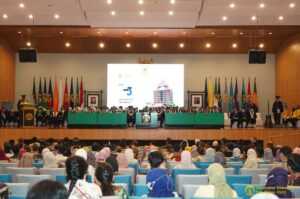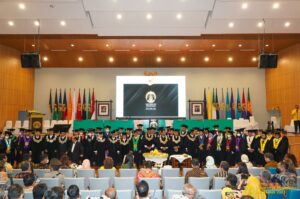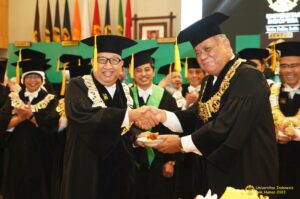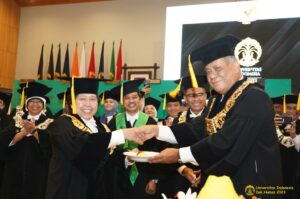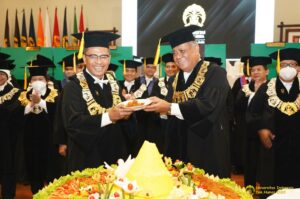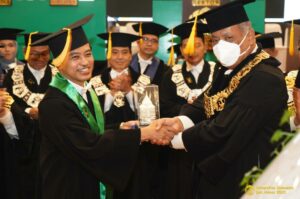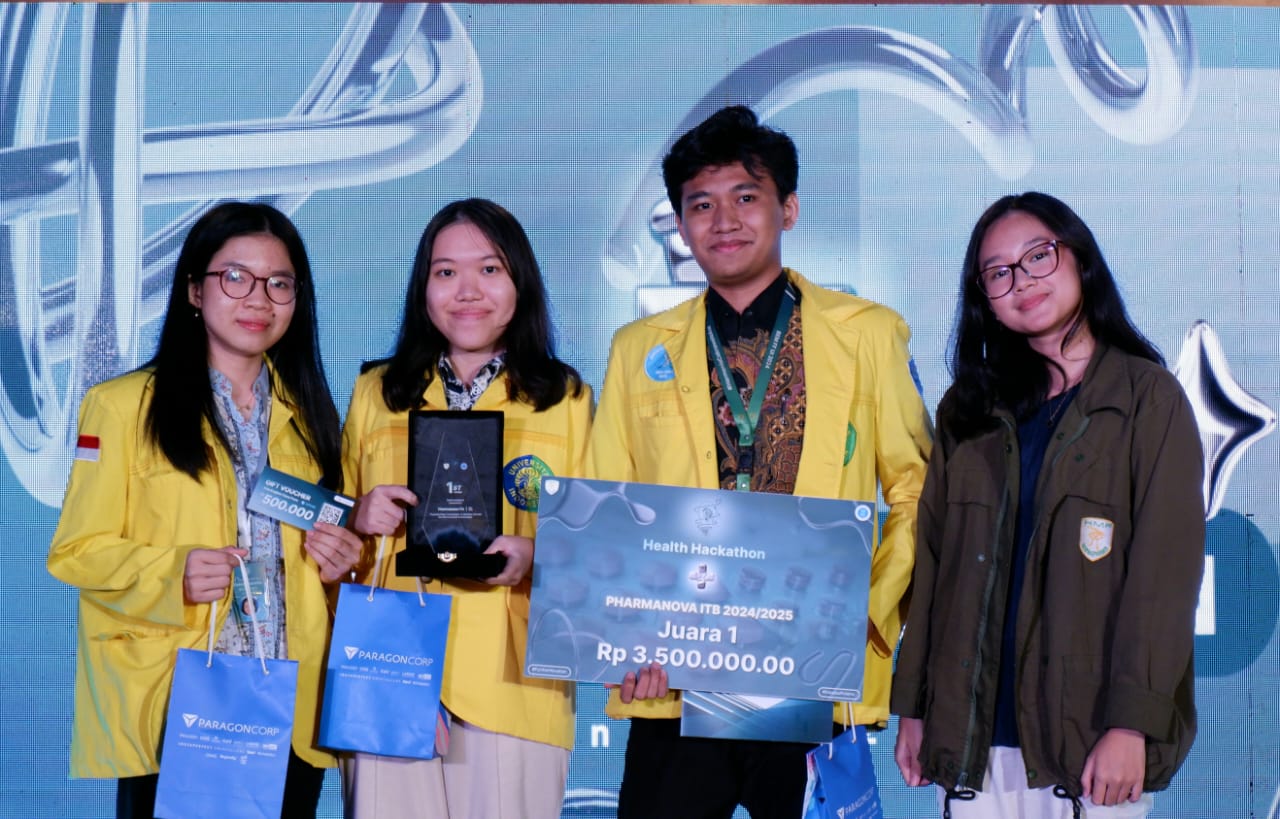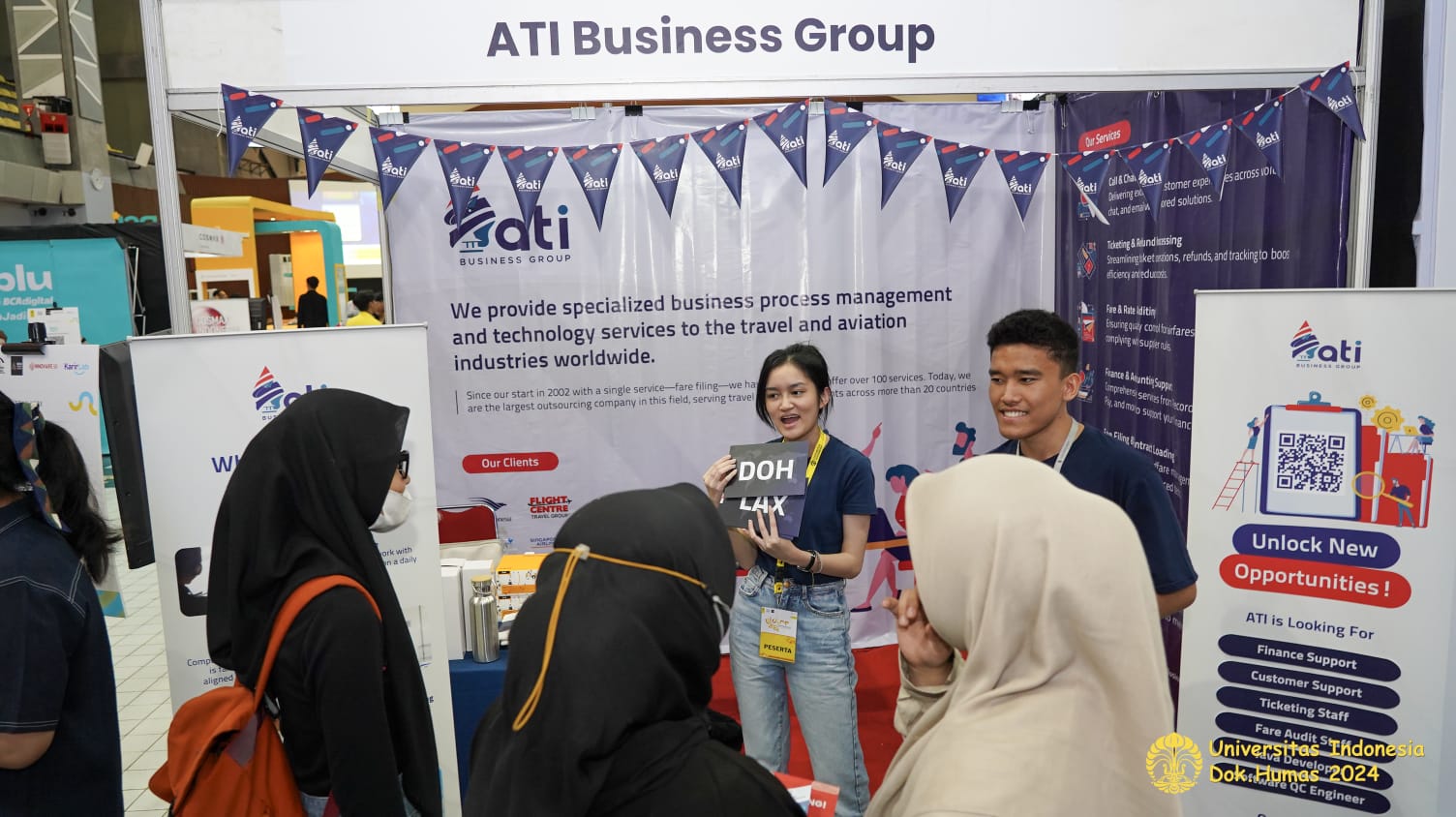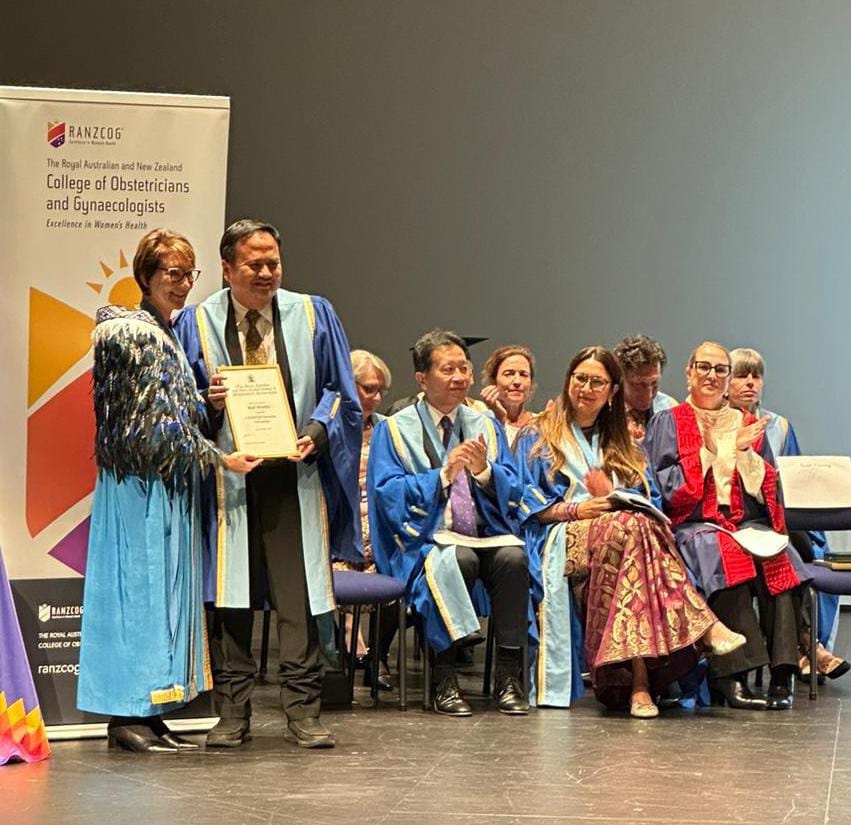
Epidemic patterns in Indonesia have changed from time to time. In the 1990s, medical technology noted that death from disease was caused by infection. This pattern changed twenty years later, from an infectious disease pattern to a non-communicable disease pattern. In fact, diseases such as stroke, heart disease, diabetes, and cirrhosis are the biggest causes of death in Indonesia. The death rate from these diseases reaches 625 thousand per year that costs 14.3 trillion rupiahs.
The data was submitted by Deputy Minister of Health of the Republic of Indonesia Prof. dr. Dante Saksono Harbuwono, Sp.PD-KEMD, Ph.D., in his scientific oration at the Ceremony of the 73rd Anniversary of Universitas Indonesia (UI), which was held at Balai Serbaguna Purnomo Prawiro, Faculty of Social and Political Sciences (FISIP) UI, Thursday (2/2). On that occasion, Prof. Dante mentioned the need for synergy from various parties, including universities, to create innovations for the realization of national resilience or resilience in the health sector.
In his scientific oration entitled “Inovasi Teknologi Kesehatan untuk Membangun Ketahanan Nasional” (Health Technology Innovation to Build National Resilience), Prof. Dante said that there are three national health technology innovation strategies that the government is promoting to create resilience in the health sector. The three strategies are drug and medical device innovation to increase local production, digital technology innovation to integrate data and bring health services closer, and biotechnology innovation for more precise medicine.
One of the ways to implement these three strategies, according to Prof. Dante, is through synergy with universities. “Universities, as centers of knowledge, play an important role in driving health innovation. Collaboration between universities and various parties will be able to create resilience in drugs and medical devices, digital products, and precision medicine for the community,” said Prof. Dante.

Rector of UI Prof. Ari Kuncoro, S.E., M.A., Ph.D. in his speech stated that UI continuously commits to becoming an innovative, independent, inclusive, dignified, and excellent higher education institution at the Southeast Asia and world levels. UI continues to prioritize collaboration with the government and industrial partners for the advancement of science, research, and innovation that has an impact on society.
“Currently, UI’s innovative products cover the fields of food, health, engineering, business, information and communication technology, and security. These products are the results of multidisciplinary collaboration between faculty and industry. As an individual and the rector of Universitas Indonesia, I express my highest appreciation to all lecturers, academic personnel, and students who have made efforts to advance education at Universitas Indonesia,” said Prof. Ari.
In the future, UI dedicates to supporting the government’s technology innovation strategy in an effort to increase health resilience. As stated by Prof. Dante, in terms of drug and medical device innovation, the government encourages all parties to focus on the production of high-tech vaccines, drugs, and medical devices with local production. In the last two years, Indonesia has succeeded in producing 7 of 14 types of antigen and tuberculosis vaccines, producing 6 of the 10 most widely consumed medicinal raw materials, and increasing expenditure on 16 of the 19 biggest medical devices produced domestically.
“We are mapping drugs, vaccines, and medical devices that have been and are being developed to become research priority references for universities. UI is one institution that focuses on that and has produced several products, such as detection devices, drugs, or medical devices that are continuously running. The drugs that have been developed are Trastuzumab, HyFC EPO, Albumin (plasma derivative), IVIg (plasma derivative), FVIII (plasma derivative), and Adalimumab,” said Prof. Dante.
Regarding digital technology innovation, the government is trying to integrate data to bring health services closer. PeduliLindungi will transform into SatuSehat application which will combine data from various stakeholders; becomes Citizen Health App; and becomes a one-stop-service for everyone’s health records. SatuSehat application has been tested in 2,893 (77.04%) health centers and 370 (31%) hospitals in Java-Bali and will be developed throughout Indonesia.
Through this application, people can seek treatment at other health facilities without having to re-enter data because old data has been stored. Doctors can immediately check the history of drug use, treatment, and so on. This interoperability is expected to provide significant changes to save time and also be paperless for better services. To accelerate the birth of digital technology innovation, universities need to expand partner cooperation with start-ups, donors, the medical device industry, health facilities, and the community.
Meanwhile, for precision medical biotechnology innovations, the government will combine clinical data, empirical data, and genomic data to improve the accuracy of disease management. At the beginning of its development, medical science used intuition (intuitive medicine) as a method of treatment. Then as technology develops, medicine becomes evidence-based medicine. However, with evidence-based medicine, not all side effects can be predicted because the data collected is not homogeneous. Therefore, there is a need for precision medicine innovations that will have an effect for a more certain, earlier diagnosis, and better treatment.
“Precision medicine will provide fewer side effects so that genomically doctors can give the most suitable drugs to patients. In addition, in the case of breast cancer, for example, this disease was previously detected by mammography and the patient was examined at the age of 50. With precision medicine, cancer-causing BRCA gene mutations can be detected earlier. By mapping the genes, BRCA gene mutations can be identified so that patients can be examined at the age of 20,” said Prof. Dante.
The 73rd Anniversary of UI Ceremony is the opening of a series of Anniversary commemorations that will culminate on February 22. With the theme “Inovasi untuk Indonesia Unggul” (Innovation for Excellent Indonesia), UI held various competitions in which UI academics could participate.
Author: Sasa

